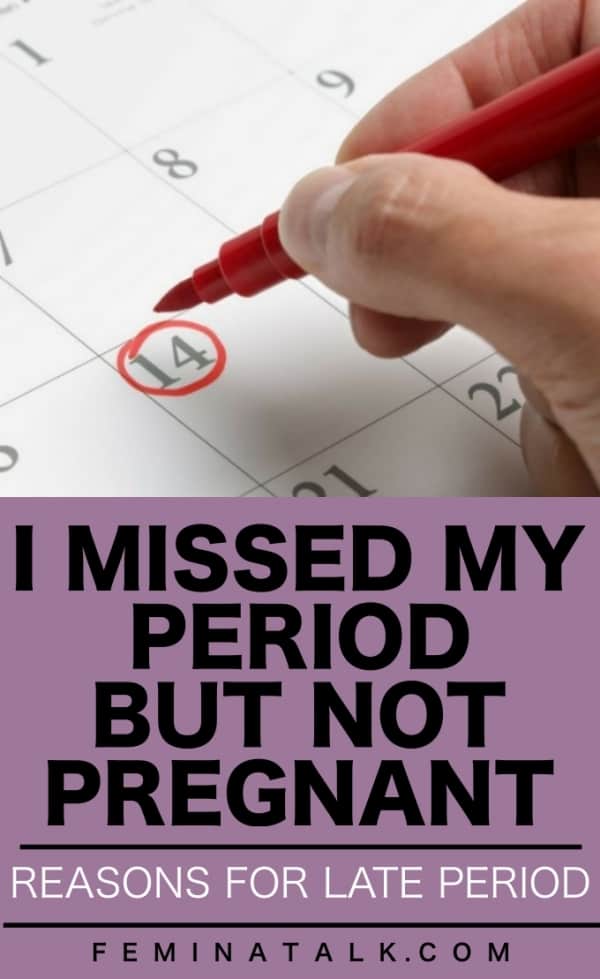

Hormonal birth control pills such as Depo-Provera can make you experience no period for 3 months. Birth control: You may experience secondary amenorrhea because of hormonal birth control.Hormonal imbalances: You may have no period for three months or longer due to a hormonal imbalance, which may be a result of an overactive thyroid gland, high testosterone levels, low estrogen levels or tumors on the pituitary gland.You may develop secondary amenorrhea due to many different reasons. It is secondary amenorrhea if after having normal menstrual cycles for years you suddenly stop getting your period for at least three months. It is considered primary amenorrhea when you do not have your first period by the age of 16. You can have primary amenorrhea or secondary amenorrhea. It means that having no period for 3 months may indicate that you are approaching your menopausal stage.

You may also experience irregular periods with other symptoms in the months leading to menopause. When you do not have a menstrual period for 12 months, this usually indicates the end of your fertile years. So be sure to take a pregnancy test to confirm it. Shedding of the uterine lining is what you see as menstrual blood. Your hormone levels rise during pregnancy and this helps maintain the thickened endometrial lining, which otherwise sheds when you are not pregnant. If you have missed a period and are also experiencing other issues such as bloating, abdominal cramping and breast tenderness, you may be pregnant. However, here are some other reasons why you have had no period for 3 months. Causes for 3 Months without PeriodsĪs mentioned, one of the most common reasons of not having a period on the expected date is pregnancy. There are definitely many reasons of amenorrhea. It is not always a cause of concern, but you may want to see your doctor if you do not have a period for at least 40 days. Some women become seriously worried when they have no period for 3 months or longer. However, you may always experience changes to your menstrual cycle due to many factors. It means most women usually have 11-13 menstrual cycles in a year. The average length of a normal menstrual cycle is 21 to 35 days.


 0 kommentar(er)
0 kommentar(er)
